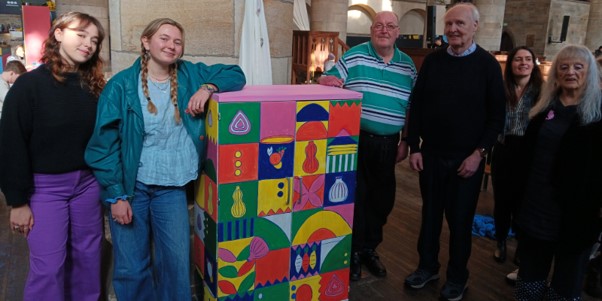
Leeds University Combats Food Waste While Supporting Local Community
In an effort to address the pressing issue of food waste and extend support to the local community, Leeds University has launched a pioneering initiative that promises significant social and environmental benefits. They have entitled it ‘Fighting Food Waste and Supporting the Community’, and are working in collaboration with Left Bank, a local community arts venue, to launch an accessible community pantry.
Built on the framework of the United Nations Sustainable Development Goals (SDGs), the project focuses on these three goals:
Goal 10: Reduce inequalities
Goal 11: Sustainable cities and communities
Goal 17: Partnerships
Rather than allowing perfectly good food to go to waste, the university is redirecting it to community organisations and food banks, where it can benefit those in need. By redistributing surplus food, Leeds University will support vulnerable individuals and families, save money, and foster a sense of support within the community. A team of volunteer student Community Pantry Guardians will also check in regularly to ensure the pantry is looked after, monitoring its success in regard to the promotion of sustainable behaviours around food waste.
Commenting on the initiative, Professor Emma Smith, Director of Sustainability at Leeds University, remarked, “We believe that universities have a responsibility to lead by example and address pressing societal and environmental challenges.” She went on to comment on the project, claiming, “Our ‘Fighting Food Waste and Supporting the Community’ initiative embodies our commitment to sustainability and social responsibility, and we are proud to collaborate with our partners to make a tangible difference.”
As Leeds University expands and refines its efforts to combat food waste and support the local community, the initiative serves as an encouragement for other organisations to follow suit and seek to create positive change in their communities.
This initiative is so important because of the environmental impact of food waste. When food waste ends up in landfills, it decomposes anaerobically (without oxygen), leading to the release of methane, which has a high global warming potential.
Food production involves the consumption of various resources such as water, land, energy, and fertilisers. When food is wasted, these resources contribute to unnecessary resource depletion and environmental degradation.
According to the Food and Agriculture Organisation of the United Nations (FAO), approximately one-third of all food produced for human consumption is lost or wasted globally each year. This equates to roughly 1.3 billion metric tonnes of food wasted annually. However, it is essential to note that this statistic comes from 2015, so there may be some difference in this staggering statistic.
Hence, Leeds University’s new initiative is a step towards combating this problem. Notably, this project tackles not only food waste, but the wider impact of climate-related issues on communities and families.
There are other ways to combat food waste, such as a tighter plan for your weekly shop and donating food you won’t or haven’t used to food banks or the pantry if it fits within its requirements. The Left Bank community pantry, accessible during Left Bank’s opening hours, so 9 a.m.–5 p.m. Monday–Friday and 11 a.m.–4 p.m. on weekends, accepts a range of items. From unopened cans, longer-life vegetables, small kitchen utensils, cake tins, and more, there’s bound to be something individuals can easily contribute. Check their website for more information.

